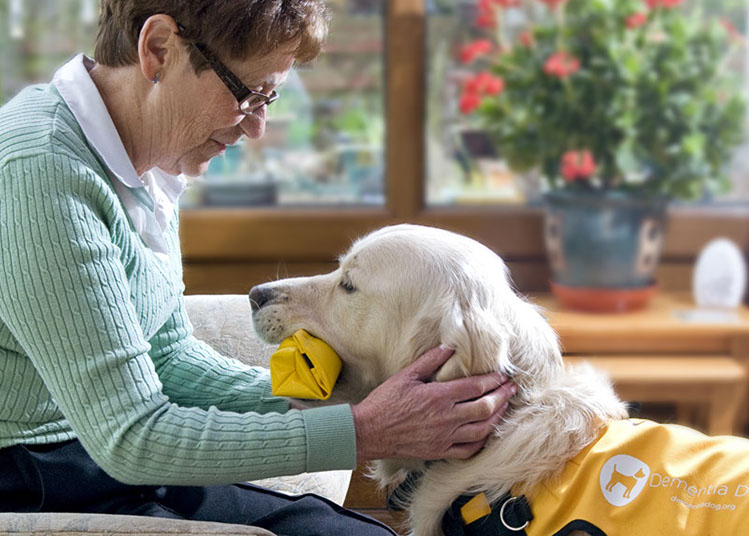Mental health refers to our cognitive, behavioral, and emotional well-being. Mental health and well-being are important at every stage of life, from childhood and adolescence through adulthood.
A broad range of investigations have found that human-animal interactions can reduce anxiety and depression and help protect against a variety of other negative feelings and emotions. Positive human-animal interactions appear to be related to changes in physiological variables in both humans and animals, such as reduced heart rate and blood pressure. Research has demonstrated an association between pet ownership and enhanced social support, emotional well-being and general well-being. Pet ownership has also been found to play a role in helping people manage long-term mental health conditions.
The Role of Pet Ownership in Management of Mental Health
A common challenge for those managing a long-term condition or mental health problem is the ability to manage and be engaged with everyday life, referred to as ontological security. Ontological security is defined as the sense of order and continuity derived from a person’s capacity to give meaning to themselves as well as maintain a positive view of the self, the world and the future. Ontological security is often thought to be associated with positive thoughts and emotions and the absence of anxiety, in addition to maintaining relationships and routines, and avoiding feeling judged or stigmatized.
- A comprehensive systematic review of the evidence found many ways in which pets help manage mental health and even facilitate recovery.
- One area of support pets provided is ‘emotional work’, or the ability to alleviate worry and provide comfort. A common theme was that owners often describe their pet as intuitively knowing when they need support. In addition, pet owners reported that they could confide worries and secrets in their pets.
- In addition to the presence of a pet, the practical work involved in caring for a pet, such as feeding, was reported to be a pleasant distraction from mental health concerns.
- Pets were also found to contribute to a stronger sense of identity in pet owners with mental health conditions, including reducing negative perceptions of a mental health condition or diagnosis.[1]
- A 2016 study explored the role of pets in the social networks of people managing a long-term mental health problem. The study found that pets contributed, over time, to individuals developing routines that provided emotional and social support. Specifically, results indicated that:
- Pets provide the ability to gain a sense of control inherent to caring for the pet;
- Pets provide a sense of security and routine developed in the relationship, which reinforced stable cognition from the creation of certainty that they could turn to and rely on pets in time of need;
- Pets provide security through generating a sense of order and continuity to individual experiences and through providing a sense of meaning in an individual’s life;
- Pets provide a distraction and disruption from distressing symptoms, such as hearing voices, suicidal thoughts, rumination and facilitating routine and exercise for those who cared for them;
- Pets provided a form of acceptance for their owners, as they began to positively associate as ‘good pet owners’. This also positively impacted how others viewed them.
- Overall, results of this study show that pets can positively contribute to factors commonly associated with ontological security, as pets can be considered main sources of support for the long-term management of mental health conditions.[2]










